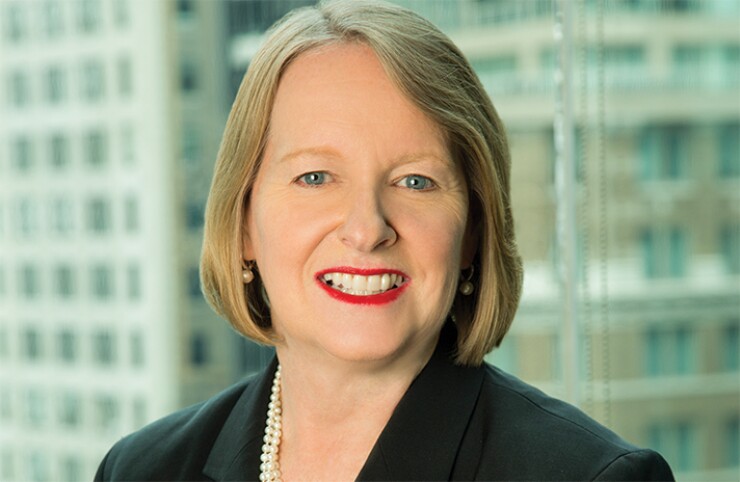Want unlimited access to top ideas and insights?
Group General Manager and Global Head of Global Liquidity and Cash Management, HSBC
From her perch atop a global business that processes $455 trillion in payments each year, Diane Reyes sees the push to bring real-time processing to the U.S. through an international lens.
London-based HSBC is a participant in real-time payment schemes in 19 countries, including Argentina, China, India, Malaysia and Sri Lanka. Around the globe, 46 nations have introduced real-time payments, according to the bank.
“So that just tells you that this is not a passing fad,” Reyes said.

For years, many U.S. banks were lukewarm about the adoption of real-time payments, perhaps because a modernized system threatened to upend their established business models.
But more recently, momentum in the U.S. has grown. A consortium of big banks launched a next-generation network in 2017, and in August the Federal Reserve announced plans for its own system.
U.S. banks that don’t embrace the new reality will risk losing their customers, Reyes said. “The market is definitely moving. Anybody who doesn’t see it — really I just don’t know how that’s possible.”
See the most recent rankings:
Over the summer, Fed Gov. Lael Brainard lamented that the U.S. retail payment infrastructure lags behind the systems used in many other countries. But the current situation presents an opportunity for the U.S., Reyes argued.
“There’s no such thing as really being behind,” she said. “If you can take advantage of what some of the other markets have done, then I think you’ve sort of leapfrogged that period in which you weren’t up and running. I think the U.S. is trying to do that.”
Reyes, who is based in New York, is HSBC’s most senior woman executive in the U.S. She joined the bank in 2011 from Citigroup.
Last year, Reyes led HSBC’s involvement in research into how digital currencies and distributed ledger technology could transform cross-border payments. One of her conclusions was that buy-in from central banks around the globe is critical.
“My personal belief is that the regulatory participation is essential,” she said.





